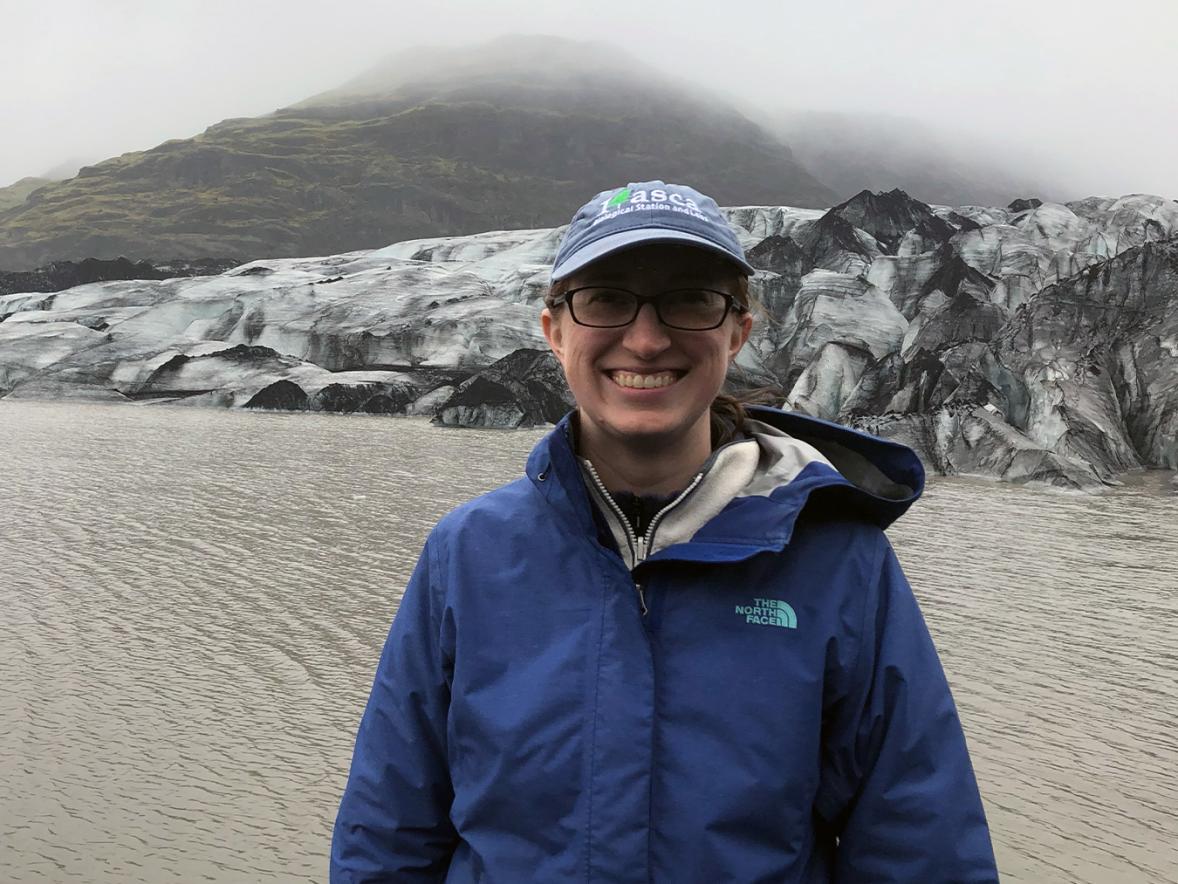It was the moment of truth for a team of UW-Stout engineering majors. As peers, professors and industry representatives gathered around, they engaged the manufacturing prototype they had created.
In about 10 seconds, their cube-shaped device housing numerous moving parts and about 250 components perfectly achieved what they had been working on for nine months: pneumatically feeding a hinge to the precise spot where Phillips-head drivers moved in to install two screws into a hinge assembly.
To the engineers looking on, it was poetry in motion.
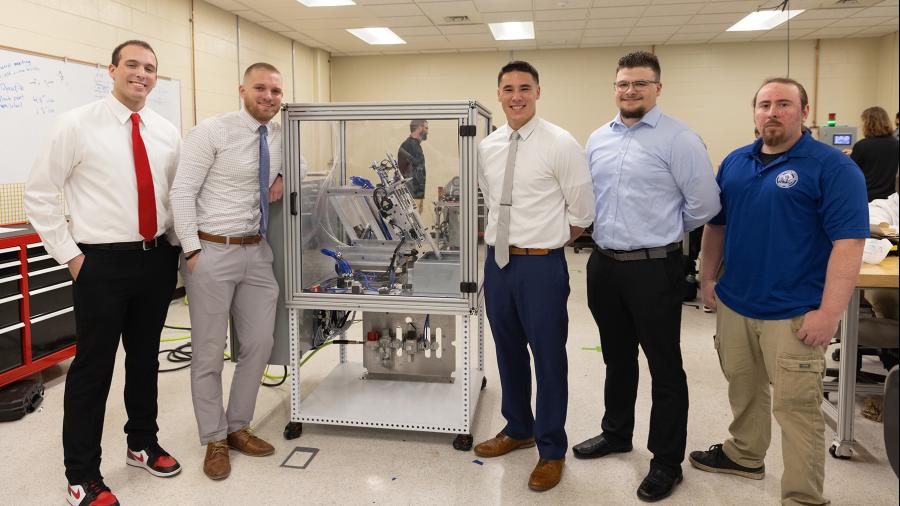
The Fryklund Hall lab demonstration was one of 12, preceded by detailed classroom presentations, during the final two weeks of the spring semester Senior Design Experience capstone course. A total of 60 students majoring in manufacturing, mechanical and computer and electrical engineering developed solutions for real manufacturing problems while building their skills and confidence as they prepare to begin their careers.
The hinge assembly project was watched closely by its sponsor, nVent, a growing, $3 billion a year global company based in St. Louis Park, Minn., that makes electrical products. Hinges in some nVent products currently are installed by hand. The UW-Stout team proved it can be automated with robotics.
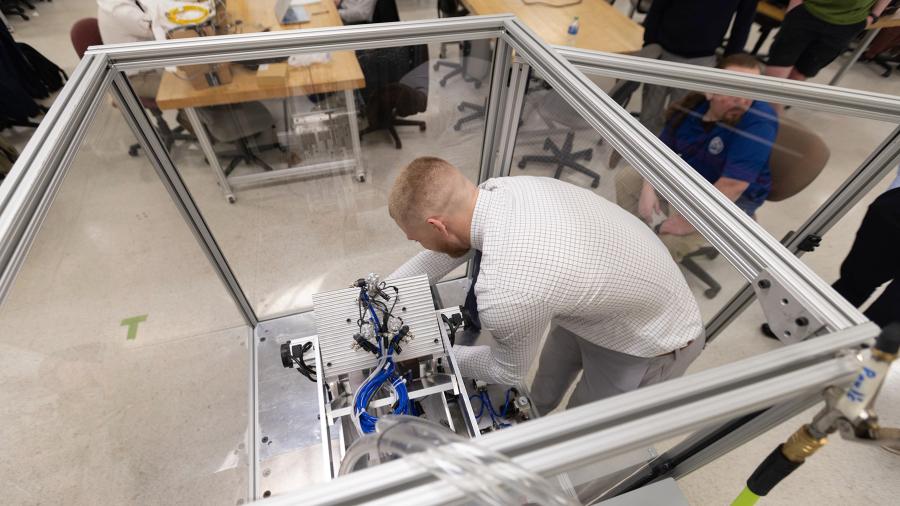
“It’s cool to see it finally come to life and have the motion we were hoping for,” said Evan Zaves, from Hortonville, a senior in manufacturing engineering. He added that the team did a “really good job with machining” the parts to one-1,000th of an inch to help their prototype operate smoothly.
Other corporations sponsoring student work included Viracon, Fastenal, DiaSorin, Industrial Heat Transfer, Loos Machine and Automation, St. Croix Tactical Manufacturing and Graco. Several companies sponsored more than one project.
Project challenges, all involving automation of processes, included developing a pressure regulator, adaptive fluid monitor, system to manage machine chips, drill and ream jig, tilt table, material handling cart, mesh shear, part marker for threaded rods and a quality control device for threaded rods.
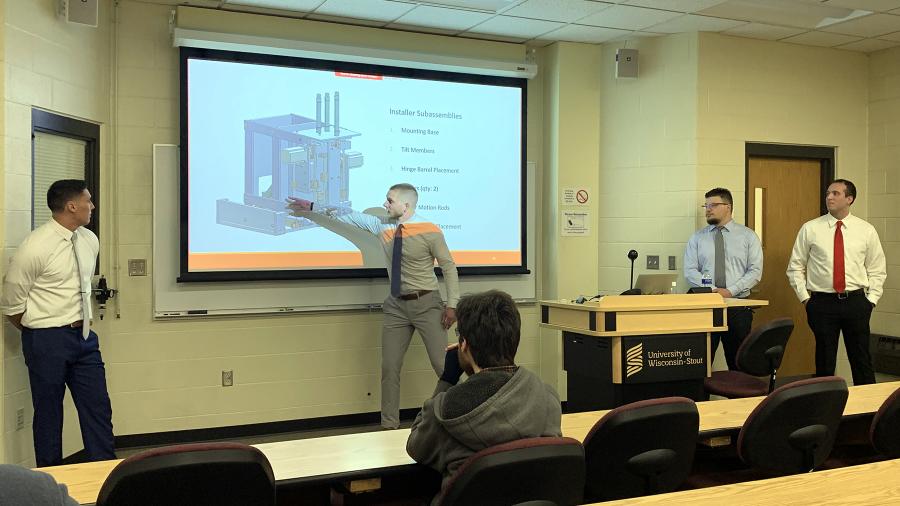
Two Viracon challenges
Viracon, of Owatonna, Minn., sponsored the handling cart and tilt table projects, hoping to automate two steps in its process of manufacturing and shipping industrial glass for large building projects.
The automatic handling cart rotated so that two sides could be loaded while communicating with a robot on the production line — and theoretically without touching the glass panels. The tilt table used built-in pistons to push 200- to 400-pound boxes onto a cart, which attaches to the table during loading with an electromagnet. Software systems control both prototypes.
The projects could improve production efficiency and worker safety while reducing costs at Viracon. As with many projects, students began their research by visiting Viracon’s production facility to see the current processes.
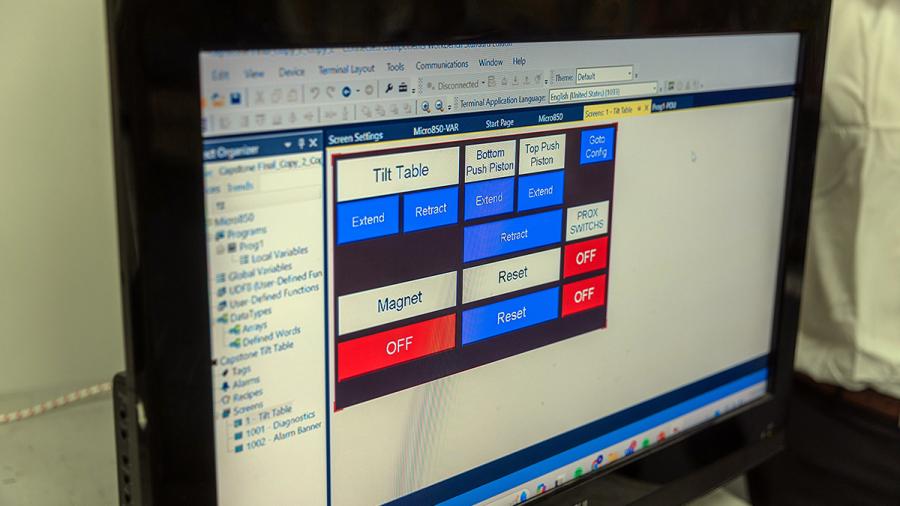
From Viracon, Senior Engineering Manager Peter Kuhlman witnessed aspects of both projects that could be incorporated into final design solutions. He especially cited the material handling cart team, which “achieved more than anyone should expect from engineering students.
“I am very impressed by the students, the professors and the program,” he said, citing great communication with the teams and effective development, design and review processes.
“I hope this is the beginning of an ongoing partnership. It’s really a win-win-win; the students get real-world experience, we get a solution to a problem and hopefully this can turn into a pipeline for engineering talent for our company. I hope to sponsor projects every year moving forward and to work with the professors to make sure that we are providing the best possible learning opportunities for the students,” Kuhlman said.
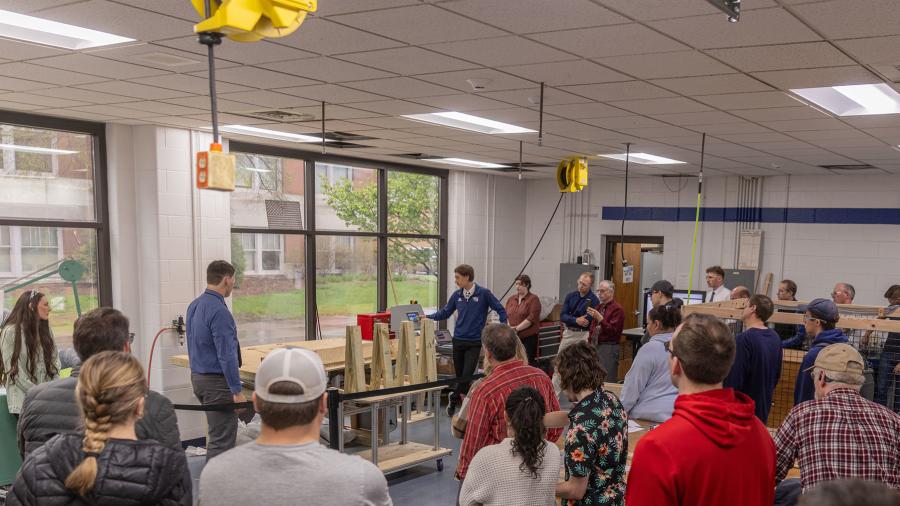
He has invited the professors to tour Viracon’s production facility to help identify new student projects. “I can’t wait to see what comes of this partnership,” he said.
More than 20 ongoing projects
Along with projects completed this spring, others are underway and will finish at the end of the fall semester while new ones also will begin in the fall — more than 20 industry collaborations at any given time.
Sponsoring companies provide full financial support of all needed equipment and materials for the testing of ideas and build of final products or systems. Students had to stay within budgets that ranged from $5,000 to $20,000, although one budget was $110,000 because it used two robots. They also submitted their project documents to the companies.
Assistant Professor Danny Bee, Senior Lecturer Glenn Bushendorf and Instrumentation Coordinator Paul Craig were the project advisers. They worked closely with students in labs and with the industry sponsors.
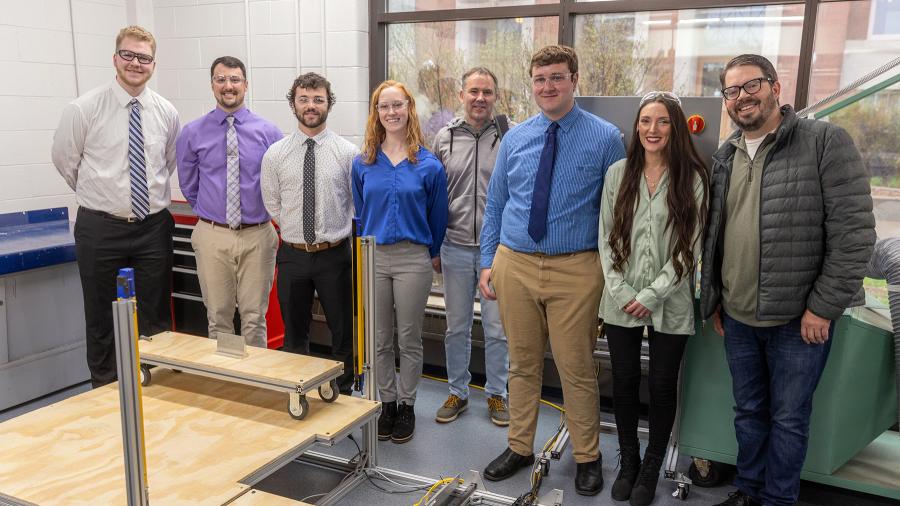
“The true value of our Senior Design Experience is to allow developing engineers to practice the stage gate-driven design and project build,” said Bee, noting a methodology that includes built-in reviews. “Our students know how to design and build their projects.”
The Senior Design Experience blends all three of the university’s tenets — applied learning and research, business and industry collaboration, and career-focused experiences.
Craig, the new program director for manufacturing engineering, said the experience prepares students for a smooth transition into the workforce. “They begin their careers with a leg up on other engineering graduates because of the extensive laboratory-based instruction, which our polytechnic university is known for,” he said.
Graduates from the mechanical and manufacturing engineering programs in 2022-23 reported 100% employment and an average starting salary of more than $70,000, according to a new university First Destination Report.
UW-Stout’s Robert F. Cervenka School of Engineering also has a program in plastics engineering, as well as a bachelor’s program in engineering technology. A master’s in manufacturing engineering is available on campus or online.
###





